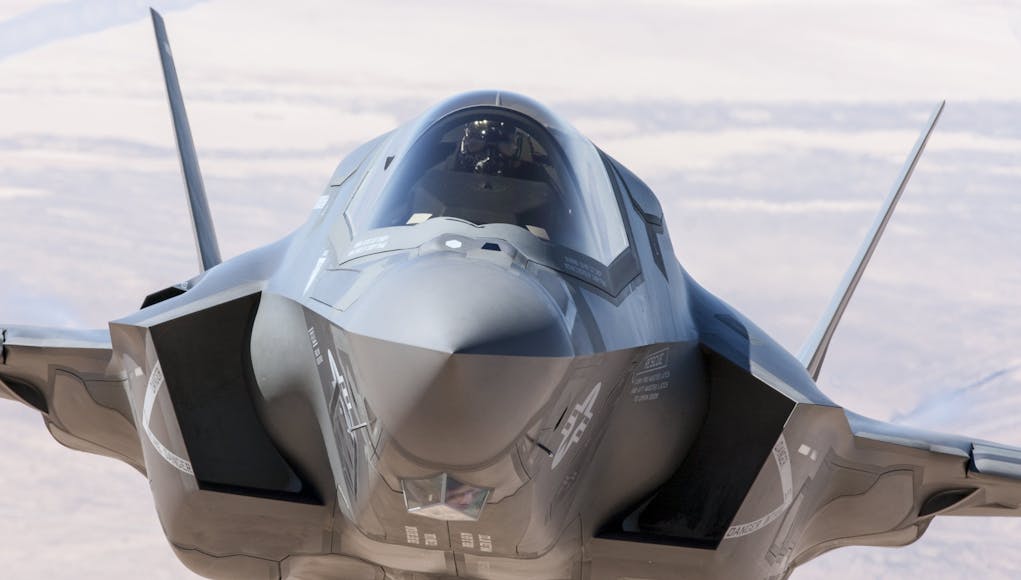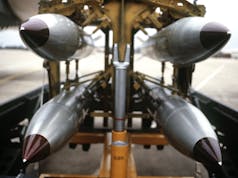Lockheed Martin has received a $90.7m contract to create a depot repair process for the F-35 integrated core processor.
The fixed-price-incentive-fee award combines purchases from the US Air Force, Navy and Marine Corps, the US Department of Defense said Thursday in a contract notice. The text of that contract notice is diplayed below.
“Lockheed Martin Corp., Fort Worth, Texas, is awarded $90,773,387 for fixed-price-incentive-fee modification P00014 to a previously awarded contract (N0001918C1048). This modification will stand up organic depot repair capabilities for the F-35 integrated core processor.
Work will be performed in McKinney, Texas (39.1 percent); Owego, New York (32.7 percent); Fort Worth, Texas (14.5 percent); Camden, New Jersey (5.9 percent); Clearwater, Florida (5 percent) and Melbourne, Florida (2.8 percent), and is expected to be completed in October 2022. Fiscal 2019 aircraft procurement (Air Force, Marine Corps and Navy) funds in the amount of $90,773,387 will be obligated at time of award, none of which will expire at the end of the current fiscal year.
This modification combines purchases for the U.S. Air Force ($45,386,693; 50 percent), U.S. Marine Corps ($22,693,347; 25 percent) and the U.S. Navy ($22,693,347; 25 percent). The Naval Air Systems Command, Patuxent River, Maryland, is the contracting activity.”
Work will take place in Florida, New Jersey, New York and Texas through October 2022.
Harris won a Lockheed-led competition last year to build an ICP system that would process data from the F-35 aircraft’s sensor, guidance and control, electronic warfare cockpit and helmet display and communications systems.
The Harris-built ICP will be integrated into F-35 aircraft starting with Lot 15 aircraft, expected to begin deliveries in 2023. The next generation ICP system is targeted to generate the following results compared to the current system:
- 75 percent reduction in unit cost
- 25 times increase in computing power to support planned capability enhancements
- Greater software stability, higher reliability, and increased diagnostics resulting in lower sustainment costs
- An Open System Architecture to enable the flexibility to add, upgrade and update future capabilities
The F-35’s ICP acts as the brains of the F-35, processing data for the aircraft’s communications, sensors, electronic warfare, guidance and control, cockpit and helmet displays.














I’ve always wondered how powerful the CPU’s are in combat aircraft and how often they get upgraded. Given how fast cpu’s develop and how long aircraft are in service they could have some massive upgrades over the years so how do the maintainers cope?
Modern avionics components are often too complex to actually fix as such. You just remove the component and replace it. The old one gets chucked in the bin.
I think this article is referring to new systems that can replace the current ones. That is more akin to you plugging in a new graphics card into your PC. Or even a whole new PC into your home.